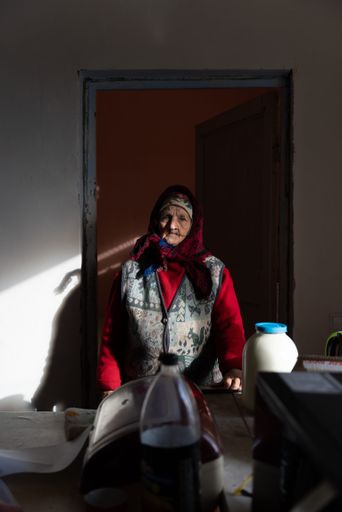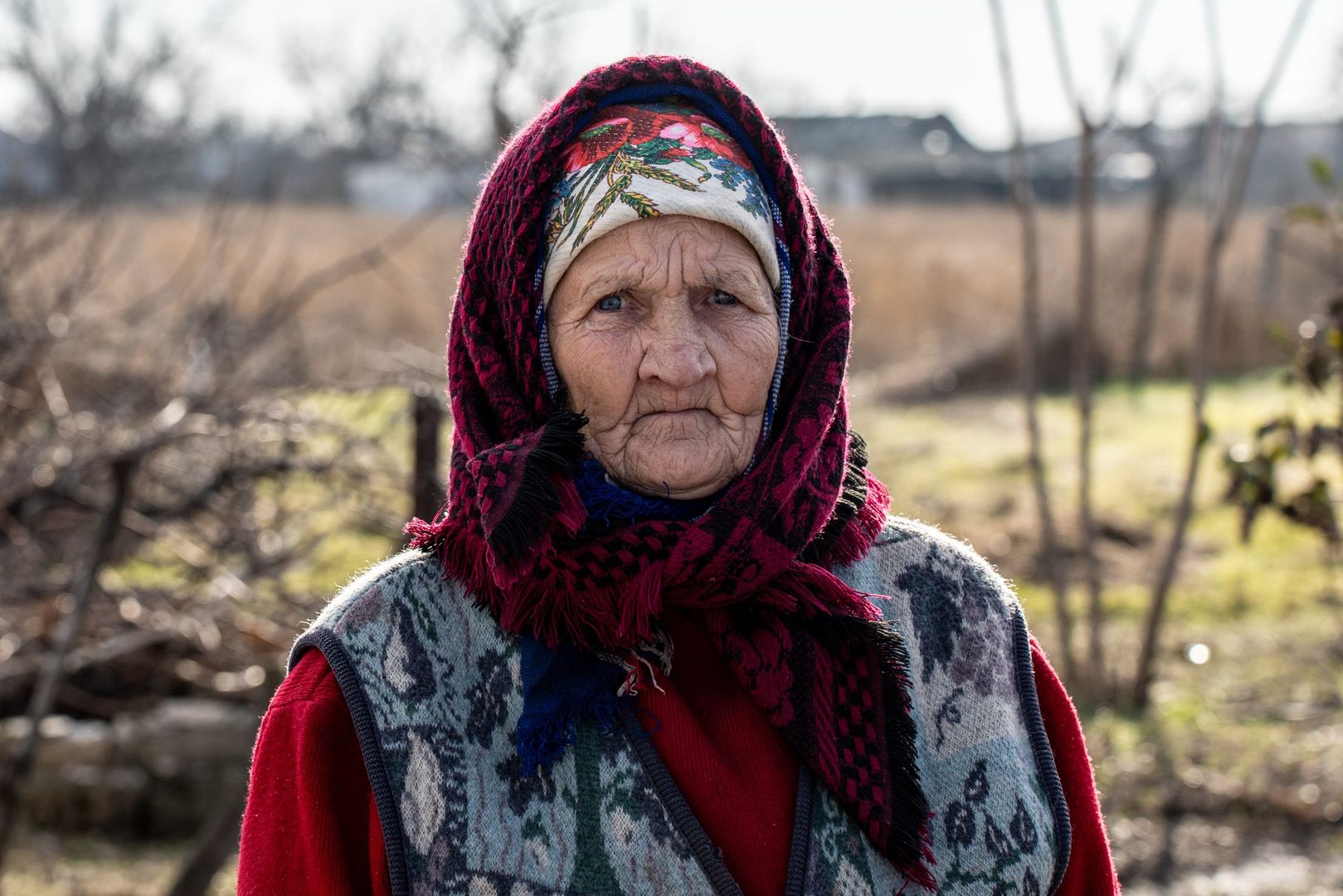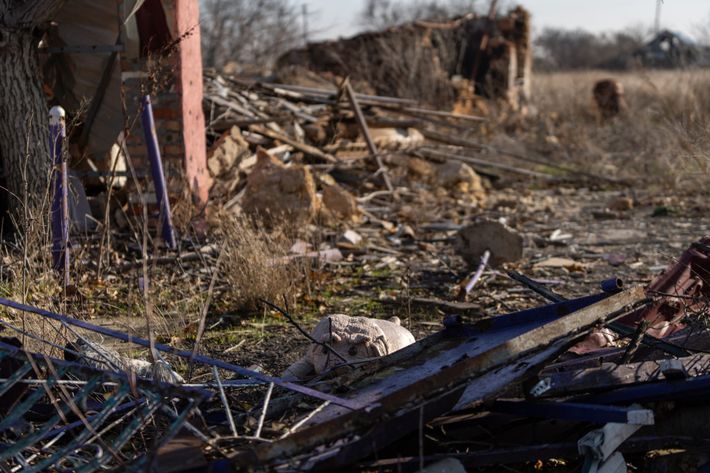Before the war broke out in Ukraine in 2022, the village of Myrne was a peaceful place with around 700 inhabitants. It was a village that relied on agriculture, had a school, and a railway station. Today, one can stand at one end of the town and see to the other, as all houses except for a few have been leveled to the ground.
The village, whose name in Ukrainian means ‘peaceful,’ was in no-man’s-land between Russian and Ukrainian forces for almost a year. The damages are extensive. The Russian forces have now withdrawn 30 kilometers away, and that means more people have started to return to the village, including 83-year-old Jevhenija.

“My house was hit by bombs five times during the fighting. Many of the neighboring houses still have unexploded bombs, but I have cleared my property,” says Jevhenija, who was evacuated while the fighting was ongoing in Myrne.
The school stands a few hundred meters from Jevhenija’s house, like a gray blockhouse of concrete. Completely bombed out. “It is hard to find hope with everything that is happening. We lived a normal life before, and suddenly there was war, crying, and everything was destroyed,” she says.
Jevhenija’s roof and windows were damaged in the fighting, and she is now trying, with the help of her son, to rebuild her home.
But it is challenging without compensation or financial aid.
And without the right documents, all of which burned when the house was hit, it is nearly impossible to get compensation.
Therefore, she is receiving assistance from DanChurchAid’s Ukrainian partner organisation ‘Right to Protection’ in a project funded by the EU, to recreate the essential documents.

“While I was away from my house, I cried all the time. It is good to be back in my home, but there is so much damage, and my son and I are doing it all ourselves. Windows, the ceiling, everything we repair ourselves,” she says.
While the work is ongoing, Jevhenija lives in her home without proper heating. She has a small stove where she can burn wood, but it rarely helps much in a home with a hole in the ceiling.
“It is very cold here, but I try to get used to it.”


